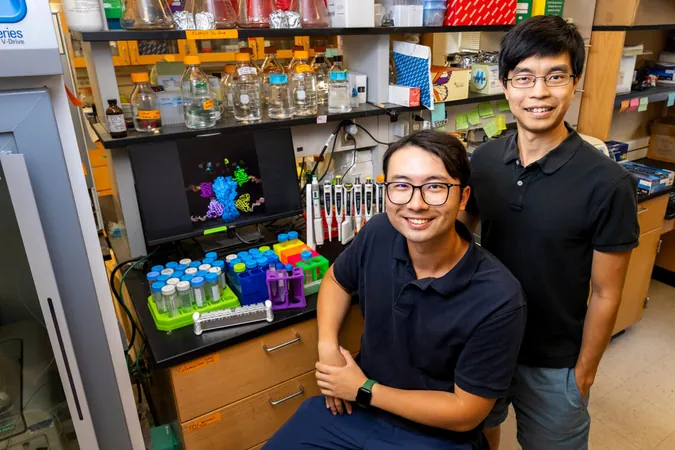
Revolutionary Antibody Testing Method Could Transform Disease Research and Treatments
2025-09-03
Author: Wei
A Game-Changer in Antibody Research
In a groundbreaking development, researchers at the University of Illinois Urbana-Champaign have introduced a high-volume method for studying antibodies, crucial agents in our immune system. This innovative approach promises to dramatically speed up research and the development of new treatments, including therapies for diseases ranging from cancer to autoimmune disorders.
The Power of the oPool+ Display
Dubbed the oPool+ display, this method allows scientists to synthesize and analyze hundreds of antibodies simultaneously, reducing traditional weeks of labor into just a few days. Lead researcher, Professor Nicholas Wu, emphasizes its potential: "With a rapid, high-throughput method like ours, we can quickly identify effective antibody candidates for various diseases."
Unlocking the Mystery of Influenza
In their recent study published in *Science Translational Medicine*, the team specifically examined antibodies targeting hemagglutinin, a key protein in influenza viruses. By creating a comprehensive library of about 300 antibody variants from diverse sources, the researchers not only sped up their process but also uncovered common interaction patterns across different immune responses. This can significantly enhance the development of broadly effective vaccines.
Cost-Efficient Breakthrough
The oPool+ display method doesn't just expedite research; it also slashes costs by up to 90% in material and labor expenses. This could potentially transform how we approach antibody-based therapies, making treatments more accessible and faster to develop.
Future Horizons in Pathogen Research
Looking ahead, the researchers aim to expand their antibody library from hundreds to tens of thousands. This scalability opens up avenues for tackling various pathogens, including potential future threats similar to COVID-19, by rapidly profiling antibody responses.
AI Meets Antibody Science
Additionally, the team plans to leverage artificial intelligence to refine their predictions of antibody structures, validating these predictions through the oPool+ method. Graduate student Wenhao Ouyang notes, "Using AI in conjunction with our method will enable us to continuously improve our predictions and accelerate the pace of discovery."
A New Frontier in Vaccine Development
The implications of this research are profound. As our understanding of antibodies deepens, this method could lead to vaccines that are effective across diverse populations, addressing the challenge posed by individual immune system variations. The future of disease research and treatment is bright, thanks to this innovative high-volume testing platform.



 Brasil (PT)
Brasil (PT)
 Canada (EN)
Canada (EN)
 Chile (ES)
Chile (ES)
 Česko (CS)
Česko (CS)
 대한민국 (KO)
대한민국 (KO)
 España (ES)
España (ES)
 France (FR)
France (FR)
 Hong Kong (EN)
Hong Kong (EN)
 Italia (IT)
Italia (IT)
 日本 (JA)
日本 (JA)
 Magyarország (HU)
Magyarország (HU)
 Norge (NO)
Norge (NO)
 Polska (PL)
Polska (PL)
 Schweiz (DE)
Schweiz (DE)
 Singapore (EN)
Singapore (EN)
 Sverige (SV)
Sverige (SV)
 Suomi (FI)
Suomi (FI)
 Türkiye (TR)
Türkiye (TR)
 الإمارات العربية المتحدة (AR)
الإمارات العربية المتحدة (AR)